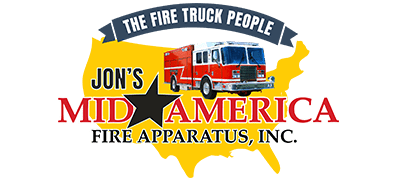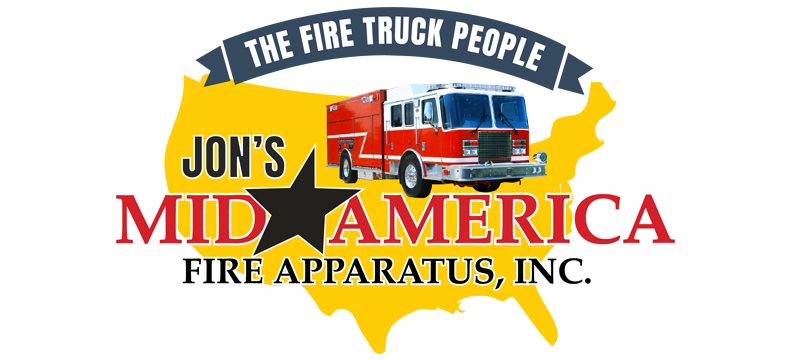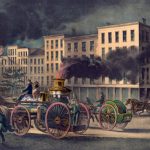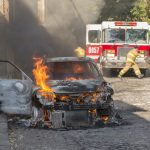Firefighters are not immune from the many hazards caused by severe weather. Just like civilians, crew members must constantly be alert and aware, taking every precaution to protect themselves so they can do their jobs well.
If severe weather strikes, here are a few helpful tips from Jon’s Mid-America Fire Apparatus.
1. Wear a helmet and eye protection.
High winds can produce dangerous, flying debris. To ensure that crews are safe at all times, they should always wear helmets and wrap-around eye protection.
2. Stay out of floodwaters.
Floodwaters (even just a few inches deep) can be life-threatening, especially if crew members aren’t trained for swift-water rescues or they do not have the proper equipment. Crews should also avoid driving through moving water until the road is declared stable and safe.
3. Know your response area.
Before spring and summer storm seasons, crews should review their response area and get familiar with the various flood zones, alternative routes, and other pertinent information. These details will prepare crews for the worst so they’re not taken by surprise if a road is blocked or an area is completely flooded.
4. Report damage to a nearby National Weather Service office.
As firefighters respond to emergency calls, they should also report things like downed trees, wires, structural damage, or funnel clouds to the nearest NWS office. This information will help forecasters determine the severity of a storm based on what’s happening on the ground, not just on the radar.
5. Ensure all communications are working.
Firefighters should make sure all communication tools are available and working so they can maintain contact with the Incident Commander at all times during a severe weather event.
6. Be aware of helicopter hazards.
Air turbulence from a helicopter’s spinning blades can produce excess debris during a fire or make the flames behave erratically. In a severe weather event, helicopters may be flying or hovering near the ground, so firefighters should take precautions and identify potential hazards.
7. Ensure your fire apparatus is operating efficiently.
To adhere to the most up-to-date standards, you should always ensure your fire apparatus is operating at its best and is ready to respond to any emergency situation, severe weather or not. The team at Jon’s Mid-America can help with preventive maintenance, parts replacement, and repair services.
Jon’s Mid-America, here for you.
If you need regularly scheduled maintenance or repair work done on your fire apparatus, the certified fire truck mechanics at Jon’s Mid-America are ready to service your vehicle. We have the highest standards for parts and repairs and our full-service shop can handle just about anything you throw our way. Contact Jon’s Mid-America Fire Apparatus today to schedule your service.



